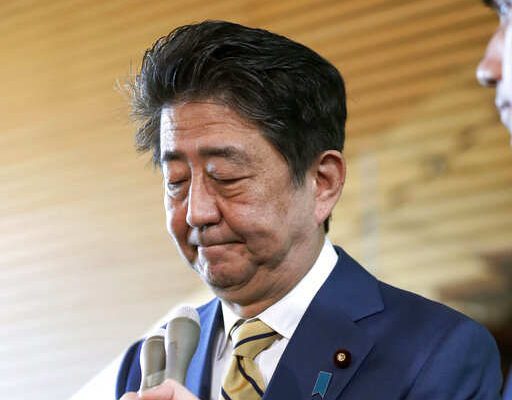TOKYO: Japanese Prime Minister sent a ritual offering to the controversial for war dead on Sunday but held off from visiting what Japan’s neighbours view as a symbol of the country’s former militarism.
Abe’s decision not to visit the shrine, which also honours 14 Japanese leaders convicted by an Allied tribunal as war criminals, was seen partly out of consideration of improving relations with China, with President Xi Jinping expected to visit Japan when it hosts a G20 summit in June.
China’s relations with Japan have long been soured by what Beijing sees as Tokyo’s failure to atone for its occupation of parts of China before and during World War Two, although ties have thawed recently.
In late 2013, Abe sparked widespread international outrage, including from key ally the United States as well as China and South Korea, when he visited the shrine.
Since then, the premier has sent offerings on the occasion of Yasukuni’s spring and autumn festivals and the anniversary of Japan’s World War Two surrender instead of going himself.
